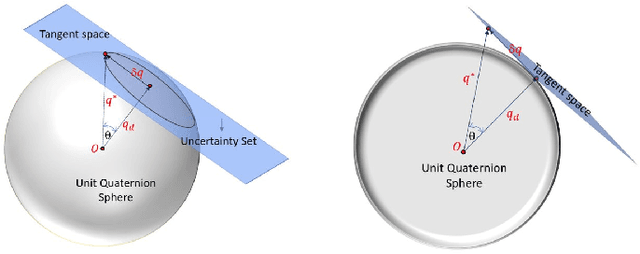Computing Robust Inverse Kinematics Under Uncertainty
Paper and Code
Oct 24, 2019



Robotic tasks, like reaching a pre-grasp configuration, are specified in the end effector space or task space, whereas, robot motion is controlled in joint space. Because of inherent actuation errors in joint space, robots cannot achieve desired configurations in task space exactly. Furthermore, different inverse kinematics (IK) solutions map joint space error set to task space differently. Thus for a given task with a prescribed error tolerance, all IK solutions will not be guaranteed to successfully execute the task. Any IK solution that is guaranteed to execute a task (possibly with high probability) irrespective of the realization of the joint space error is called a robust IK solution. In this paper we formulate and solve the robust inverse kinematics problem for redundant manipulators with actuation uncertainties (errors). We also present simulation and experimental results on a $7$-DoF redundant manipulator for two applications, namely, a pre-grasp positioning and a pre-insertion positioning scenario. Our results show that the robust IK solutions result in higher success rates and also allows the robot to self-evaluate how successful it might be in any application scenario.
 Add to Chrome
Add to Chrome Add to Firefox
Add to Firefox Add to Edge
Add to Edge